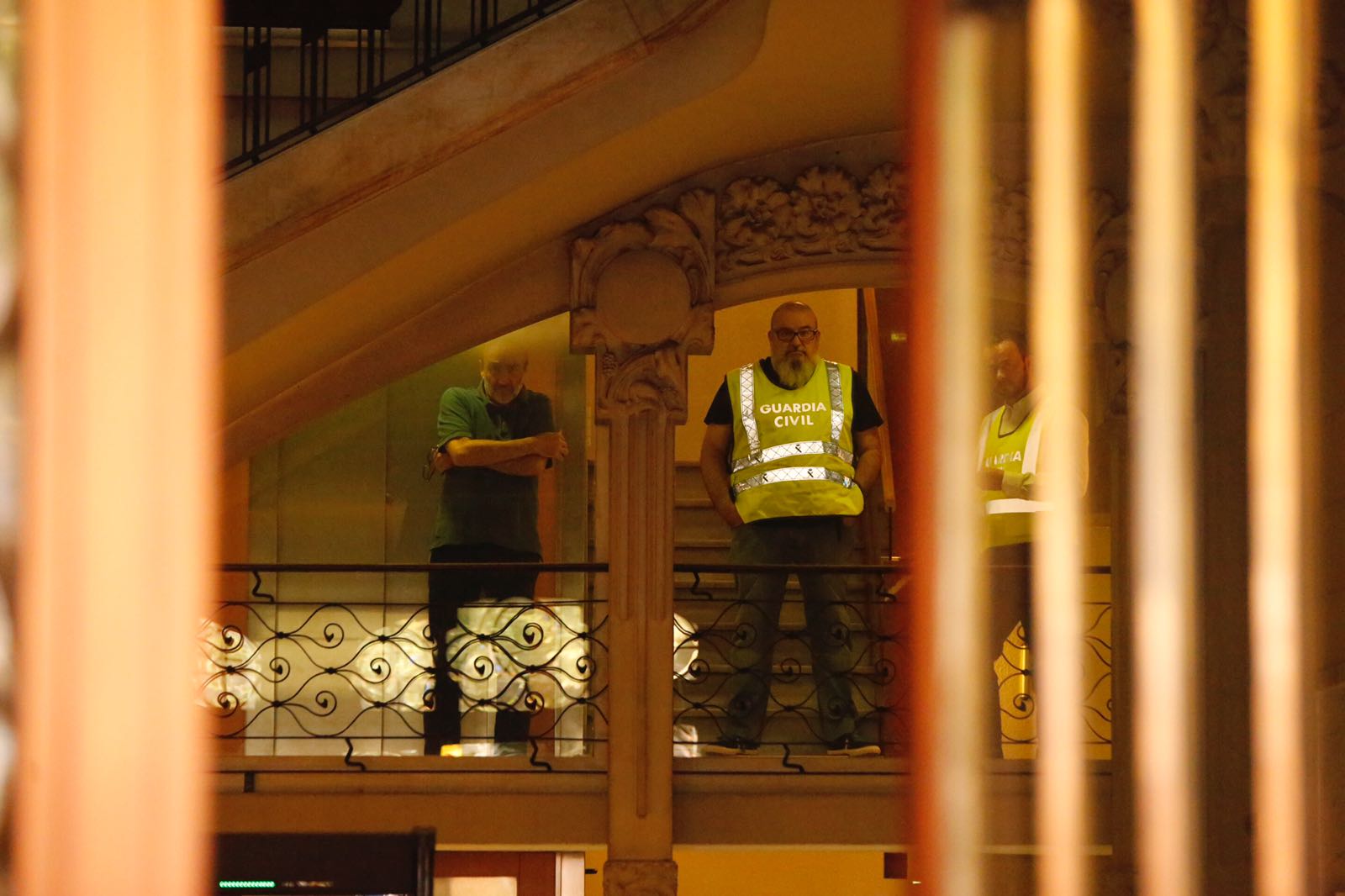Protected by a secrecy injunction, Barcelona's instructing judge number 13, José Antonio Ramírez Sunyer, has since February ordered several police operations looking for evidence that could stop the referendum. Two reports based on statements made by Santi Vidal at the start of the year opened Pandora's box and set off all alarms. The case reached the courts, in the hands of a judge known for controversial proceedings against independence supporters, anarchists and castells (human towers) team members.
Today, Ramírez Sunyer has broken his silence and for the first time allowed a press statement. It's one paragraph with few details but which suggests for the first time how many people are being acted against: 20. 20 Catalan government officials, some of whom were interrogated by the Civil Guard at the end of July.
We also learnt of the alleged crimes today: disobedience, perversion of justice and misuse of public funds.
But is José Antonio Ramírez Sunyer encroaching on powers that should fall to Mercedes Armas, the magistrate investigating the Public Prosecutor's complaint against Catalan government officials, among them the president, Carles Puigdemont?
There's not a single "referendum" case. There are different investigations underway based on the lawsuits presented by the public prosecutor and the reports against the statements made by former judge and senator Santi Vidal. Legal sources say that as long as the investigation doesn't stumble into any of the suspects with parliamentary privilege, there's not need to inhibit it and it can continue as it has done until now.
If today, after the searches at the Economy Ministry, they find evidence against vice-president Oriol Junqueras, for example, the judge of court 13 would have to hand the case over, or at least part of it, to the magistrate of the Supreme Court of Justice of Catalonia, Mercedes Armas. However, for the time being, that's not the case. Therefore the judge has full powers to investigate and orders searches and arrests.
What the judge doesn't specify in the brief statement is whether he ordered them or not. He doesn't specify if they're his own initiative or whether he ordered them after a request from the Civil Guard.
Nor does he link the searches he said he has ordered with those being carried out. According to the judge, he ordered 41 searches in "six offices located in different buildings of the government of Catalonia. The searches are limited to the offices of people being investigated within the case. Moreover, today, the magistrate has agreed the searching of three businesses in Barcelona related with the criminal activity being investigated. Also agreed were searches of non-official professional offices and private homes."
Today's searches took place in the departments of Economy, Governance, Social Well-Being and Foreign Affairs, the Centre of Telecommunications and Information Technology, the Treasury, the Citizen Assistance Service and the Catalan Finance Institute. Agents have also been to the Consortium of Open Administration of Catalonia, the company Indra and the Tax Agency in Zona Franca.
Not clarified is whether orders were given at the same time to enter the headquarters of the CUP (Popular Unity Candidacy party) to confiscate referendum material, as happened this lunchtime.
The other referendum cases
The Supreme Court of Justice of Catalonia announced in the middle of today's searches of government departments that the two witness appearances scheduled for this afternoon in the case under judge Maria Eugènia Alegret against the speaker of the Catalan parliament, Carme Forcadell, and members of the Parliament's Board, were suspended at the request of one party, because one lawyer was unable to attend.
As for the lawsuits against Neus Lloveras, president of the Association of Municipalities for Independence, and Miquel Buch of the Association of Catalan Municipalities, the judge has today ruled that, as a cautionary measure, their web pages should have all information about the referendum removed.
Police swagger
The Civil Guard is showing off judicial powers and the Spanish National Police are making a show of force. In front of CUP's headquarters today, paradoxically, riot officers were deployed by the Spanish police, despite them not having jurisdiction over public order.
Armoured vans and agents bearing rubber bullet weapons (no longer used in Catalonia by the Mossos d'Esquadra, Catalan police) showed up in front of one of the easiest places to provoke: the demonstration in front of CUP's headquarters.

